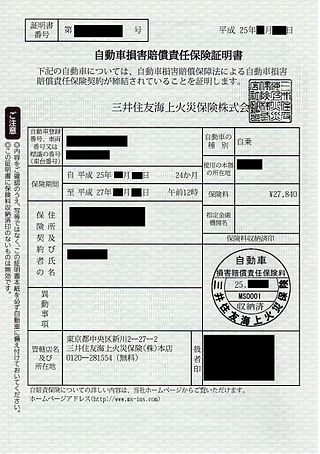
Insurance is a means of protection from financial loss in which, in exchange for a fee, a party agrees to compensate another party in the event of a certain loss, damage, or injury. It is a form of risk management, primarily used to protect against the risk of a contingent or uncertain loss.

Life insurance is a contract between an insurance policy holder and an insurer or assurer, where the insurer promises to pay a designated beneficiary a sum of money upon the death of an insured person. Depending on the contract, other events such as terminal illness or critical illness can also trigger payment. The policyholder typically pays a premium, either regularly or as one lump sum. The benefits may include other expenses, such as funeral expenses.

Vehicle insurance is insurance for cars, trucks, motorcycles, and other road vehicles. Its primary use is to provide financial protection against physical damage or bodily injury resulting from traffic collisions and against liability that could also arise from incidents in a vehicle. Vehicle insurance may additionally offer financial protection against theft of the vehicle, and against damage to the vehicle sustained from events other than traffic collisions, such as keying, weather or natural disasters, and damage sustained by colliding with stationary objects. The specific terms of vehicle insurance vary with legal regulations in each region.
In an insurance policy, the deductible is the amount paid out of pocket by the policy holder before an insurance provider will pay any expenses. In general usage, the term deductible may be used to describe one of several types of clauses that are used by insurance companies as a threshold for policy payments.
In insurance, the insurance policy is a contract between the insurer and the policyholder, which determines the claims which the insurer is legally required to pay. In exchange for an initial payment, known as the premium, the insurer promises to pay for loss caused by perils covered under the policy language.

In tort law, a duty of care is a legal obligation that is imposed on an individual, requiring adherence to a standard of reasonable care to avoid careless acts that could foreseeably harm others, and lead to claim in negligence. It is the first element that must be established to proceed with an action in negligence. The claimant must be able to show a duty of care imposed by law that the defendant has breached. In turn, breaching a duty may subject an individual to liability. The duty of care may be imposed by operation of law between individuals who have no current direct relationship but eventually become related in some manner, as defined by common law.
Liability insurance is a part of the general insurance system of risk financing to protect the purchaser from the risks of liabilities imposed by lawsuits and similar claims and protects the insured if the purchaser is sued for claims that come within the coverage of the insurance policy.
Personal injury protection (PIP) is an extension of car insurance available in some U.S. states that covers medical expenses and, in some cases, lost wages and other damages. PIP is sometimes referred to as "no-fault" coverage, because the statutes enacting it are generally known as no-fault laws, and PIP is designed to be paid without regard to "fault," or more properly, legal liability. That is, even if the person seeking PIP coverage caused the accident, they are entitled to make a claim under the PIP portion of their policy. "No-Fault" does not mean that insurance premium of the person making the claim will not increase. Typically a PIP claim is made by the insured driver to their own insurance company, however, there are several exceptions that allow persons who have been injured in an accident to make a PIP claim if they do not own a vehicle. The particular state law and policy language of the insurer should be reviewed to see what exceptions exist in that state.
The term replacement cost or replacement value refers to the amount that an entity would have to pay to replace an asset at the present time, according to its current worth.
Insurance bad faith is a tort unique to the law of the United States that an insurance company commits by violating the "implied covenant of good faith and fair dealing" which automatically exists by operation of law in every insurance contract.
In insurance law, a KC clause is a clause in an insurance policy that provides that an action against the insured is not to be contested unless a King's Counsel advises that the defence has a reasonable prospect of success.
Umbrella insurance is a kind of liability insurance. It typically applies when liability exceeds the limits of other policies, although it may also serve as primary insurance for losses not covered by other policies.

A Cumis counsel is "an attorney employed by a defendant in a lawsuit when there is a liability insurance policy supposedly covering the claim, but there is a conflict of interest between the insurance company and the insured defendant."
Professional liability insurance (PLI), also called professional indemnity insurance (PII) but more commonly known as errors & omissions (E&O) in the US, is a form of liability insurance which helps protect professional advising, consulting, and service-providing individuals and companies from bearing the full cost of defending against a negligence claim made by a client in a civil lawsuit. The coverage focuses on alleged failure to perform on the part of, financial loss caused by, and error or omission in the service or product sold by the policyholder. These are causes for legal action that would not be covered by a more general liability insurance policy which addresses more direct forms of harm. Professional liability insurance may take on different forms and names depending on the profession, especially medical and legal, and is sometimes required under contract by other businesses that are the beneficiaries of the advice or service.
Negligent entrustment is a cause of action in United States tort law which arises where one party is held liable for negligence because they negligently provided another party with a dangerous instrumentality, and the entrusted party caused injury to a third party with that instrumentality. The cause of action most frequently arises where one person allows another to drive their automobile.
Legal protection insurance (LPI), also known as legal expenses insurance (LEI) or simply legal insurance, is a particular class of insurance which facilitates access to law and justice by providing legal advice and covering the legal costs of a dispute, regardless of whether the case is brought by or against the policyholder. Depending on the national rules, legal protection insurers can also represent the policyholder out-of-court or even in-court.
In insurance policies, an additional insured is a person or organization who enjoys the benefits of being insured under an insurance policy, in addition to whoever originally purchased the insurance policy. The term generally applies within liability insurance and property insurance, but is an element of other policies as well. Most often it applies where the original named insured needs to provide insurance coverage to additional parties so that they enjoy protection from a new risk that arises out of the original named insured's conduct or operations. An additional insured often gains this status by means of an endorsement added to the policy which either identifies the additional party by name or by a general description contained in a "blanket additional insured endorsement".
A reservation of rights, in American legal practice, is a statement that an individual, company, or other organization is intentionally retaining full legal rights to warn others of those rights. The notice avoids later claims that one waived legal rights that were held under a contract, copyright law, or any other applicable law.
Insurance in South Africa describes a mechanism in that country for the reduction or minimisation of loss, owing to the constant exposure of people and assets to risks. The kinds of loss which arise if such risks eventuate may be either patrimonial or non-patrimonial.

Jeffrey Isaac Ehrlich is an American lawyer and author, known for handling landmark appeals in the United States Supreme Court and the California Supreme Court. He is co-author of the influential Thomson Reuters treatise on insurance litigation, and editor-in-chief of Advocate, the most widely circulated trial-bar magazine in the United States. He and his son, Clinton Ehrlich, are also known for exonerating Sgt. Raymond Lee Jennings, an Iraq War veteran who served 11 years of a life sentence for murdering teenager Michelle O'Keefe.





